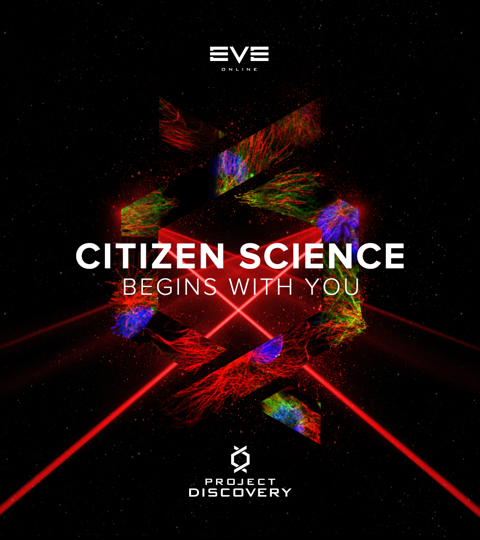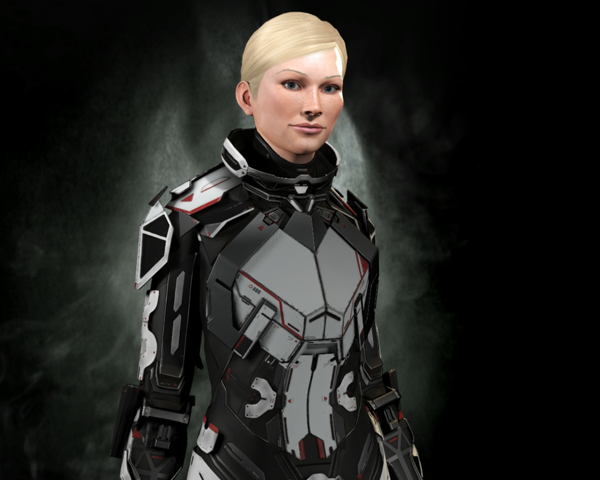Research becomes computer-game
Project Discovery aims to employ the general public to help scientists make new discoveries through EVE online, a massive multiplayer online role-playing game. Emma Lundberg at KTH Royal Institute of Technology/SciLifeLab has cooperated with two game companies to engage gamers in her research project.
Computer- and TV games are not just fun but have also been shown to spur personal and intellectual development. Furthermore, they can be used for performing research with help from the public community; this is called Citizen Science and the concept behind Project Discovery – the game that Emma Lundberg and her group has been involved in. The game will be released as part of the science fiction game Eve Online, a multiplayer online role-playing game played by nearly 500 000 people.
 The players’ task is to recognize patterns in microscope images of cells where proteins have been dyed in different colors; uncharacterized microscope images are compared with reference images showing the pattern of all major organelles and structures in the cell. The players are awarded with credits that can be used in the game’s economy system. The goal is to integrate the interpretations from the players into the publicly available database for all human proteins that the Human Protein Atlas project is developing.
The players’ task is to recognize patterns in microscope images of cells where proteins have been dyed in different colors; uncharacterized microscope images are compared with reference images showing the pattern of all major organelles and structures in the cell. The players are awarded with credits that can be used in the game’s economy system. The goal is to integrate the interpretations from the players into the publicly available database for all human proteins that the Human Protein Atlas project is developing.
“We hope that the players can help us to make a detailed protein map that in turn can give us a better understanding of human proteins and what roles they play in our cells.” Said Emma Lundberg. “There are hundreds of thousands of images to map so the workload is quite heavy”.
Emma Lundberg thinks that the game will help KTH Royal Institute of Technology and SciLifeLab to spread research efforts to the general public. Knowledge transfer from universities to the public is demanded by law in Sweden, a mission called “the third task” (den tredje uppgiften). It is also a way for the researchers to get insight into how the results differ if they employ computers, a few experts, or many non-experts to recognize the patterns in their pictures.
“There could be tiny or unusal patterns that most people and computers miss, but some people find.” Said Emma Lundberg.
 The first version of Project Discovery will include classification of patterns of protein subcellular distribution in human cell lines. If it works out well, the researchers might proceed with more complex questions like classification of protein patterns in normal or cancer tissue. The workflow between the players in the game is directed by an agent in Eve Online who, not coincidentally, is called Professor Lundberg and looks quite a lot like Emma.
The first version of Project Discovery will include classification of patterns of protein subcellular distribution in human cell lines. If it works out well, the researchers might proceed with more complex questions like classification of protein patterns in normal or cancer tissue. The workflow between the players in the game is directed by an agent in Eve Online who, not coincidentally, is called Professor Lundberg and looks quite a lot like Emma.
Computer-games connected to research are not a completely new phenomenon. Two years ago the online game Foldit was released. In Foldit, the players compete in protein folding – the process that gives proteins their specific three-dimensional structure. But Project Discovery is the first game where research is incorporated into already an existing, large, popular game that have been designed for amusement.
The interface between the research images and Eve Online has been developed by Attila Szantner at Massively Multiplayer Online Science. CCP games has developed the game, and Emma Lundberg and her group has contributed with content in form of microscope images.
For more information contact Emma Lundberg, emma.lundberg@localhost




